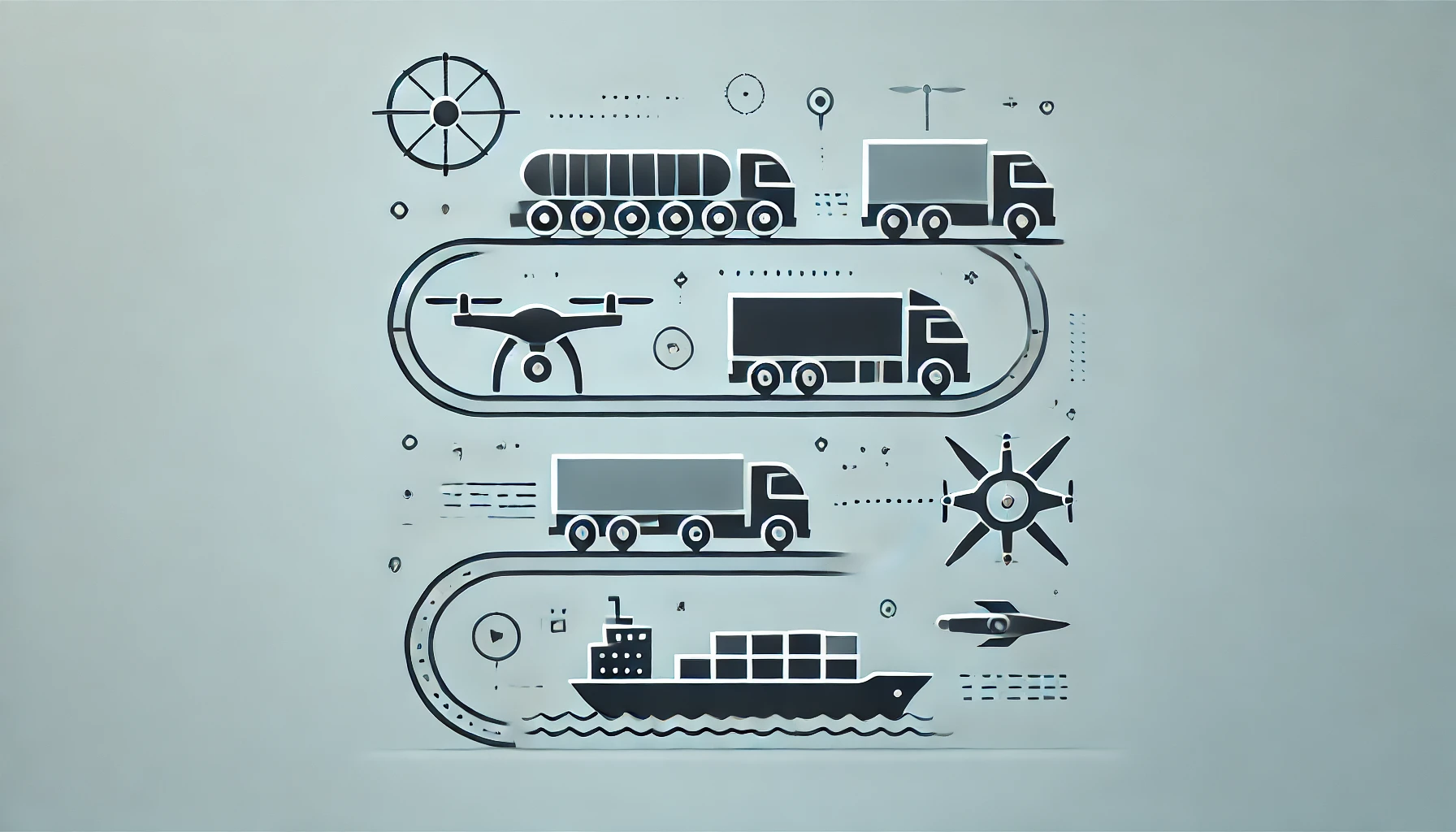
Logistyka dostaw to skomplikowana i wieloaspektowa dziedzina, która nieustannie wymaga wdrażania nowych rozwiązań w celu zwiększenia efektywności i obniżenia kosztów. W ostatnich latach obserwuje się aktywne wykorzystanie alternatywnych podejść, które pomagają radzić sobie z wyzwaniami związanymi z dostarczaniem towarów. Te innowacje nie tylko poprawiają jakość obsługi klientów, ale także sprzyjają zrównoważonemu rozwojowi biznesu. Bieżące wyzwania w logistyce Nowoczesna logistyka stoi przed szeregiem problemów, takich jak: • Wzrost wolumenów sprzedaży online Wraz z rozwojem e-commerce rośnie potrzeba szybkiej i niezawodnej dostawy. • Trudności ostatniej mili Dostawa do ostatecznego odbiorcy często okazuje się najdroższą i najbardziej czasochłonną częścią łańcucha logistycznego. • Wymagania ekologiczne Zrównoważony rozwój staje się ważnym aspektem dla firm dążących do zmniejszenia śladu węglowego. • Zmiany technologiczne Szybki rozwój technologii wymaga od firm dostosowania się do nowych warunków i wdrażania innowacyjnych rozwiązań. Alternatywne rozwiązania w logistyce 1. Modele hybrydowe dostawy 2. Wykorzystanie dronów i autonomicznych pojazdów 3. Inteligentne platformy i sztuczna inteligencja 4. Internet rzeczy (IoT) 5. Blockchain Przykłady udanego zastosowania alternatywnych rozwiązań Wiele firm już z powodzeniem wdrożyło alternatywne rozwiązania w swojej logistyce: • DHL aktywnie wykorzystuje drony do dostarczania leków do odległych obszarów. • FedEx testuje autonomiczne pojazdy do dostarczania paczek w warunkach miejskich. • Amazon rozwija swoją sieć dronów do szybkiej dostawy towarów do klientów. Te przykłady pokazują, jak innowacyjne technologie mogą zmienić podejście do dostawy i zwiększyć ogólną efektywność operacji logistycznych. Alternatywne rozwiązania w logistyce dostaw stają się koniecznością dla firm dążących do utrzymania konkurencyjności na rynku. Wykorzystanie modeli hybrydowych, dronów, inteligentnych platform i technologii IoT pozwala nie tylko poprawić jakość obsługi klientów, ale także obniżyć koszty operacji. Czytaj także: hybrydowe ciężarówki na europejskich drogach






